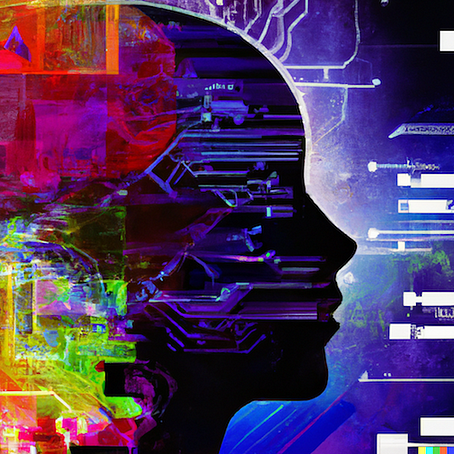These technological advancements bring a unique opportunity

The Spark Of Medical Genius
The convergence of GPT and the human touch.
GPT Summary: The healthcare industry is at an inflection point with the emergence of large language models (LLPs) such as GPT, which offer significant advantages in medicine. LLPs can process and generate human-like language, adapt language style based on the target audience, and process large data sets more efficiently than humans. This technology enables healthcare professionals to elevate their emotional skills and collaborate more effectively while leveraging the cognitive abilities of AI models. This convergence of advanced technology and human emotion has the potential to revolutionize patient care and elevate the overall healthcare experience.
The healthcare industry stands at an inflection point, as the rapid emergence of large language models, such as the GPT, offers unparalleled advantages in multiple aspects of medicine. These technological advancements bring a unique opportunity for healthcare professionals to elevate their emotional skills while leveraging the cognitive abilities of these AI models, creating a duality of optimal care.
Language and Translation
One of the most significant advantages of LLPs is their ability to process and generate human-like language. The sophisticated algorithms behind these models can understand and generate text in multiple languages, providing immense value in translating medical documents, research articles, and patient records. This capability helps break down language barriers and ensures that vital information is accessible to all, regardless of linguistic differences.
Language Style Adaptation
Another essential benefit of LLPs is their capacity to adapt language style based on the target audience. For instance, they can generate text using layman’s terms for patients, technical jargon for clinicians, and academic language for researchers. This flexibility allows for effective communication and understanding between different stakeholders in the healthcare ecosystem, fostering a more collaborative and informed environment. From thought leader to caregiver, the voice of care is brilliant and customized to very specific needs.
Data Sets and Clinical Skills
LLPs, such as GPT models, are trained on vast amounts of data and can process large data sets more efficiently than humans. This ability allows them to support healthcare professionals in making more accurate diagnoses and treatment recommendations. By analyzing electronic health records, medical literature, and patient information, these models can identify patterns and correlations that might otherwise go unnoticed or never appear on the clinical radar.
Furthermore, LLPs can be used to augment medical training, providing medical students and residents with access to an extensive knowledge base, helping them develop clinical skills and stay up-to-date with the latest research and best practices. Education is shifting from the 4 years of medical school (and of course, post graduate training and CME) to a new ongoing, lifetime continuum that is optimized by technology and is both responsive and iterative to the specific and in the moment needs of a clinician.
The Convergence: celebrating cognitive capacity and emotional skills.
In an increasingly data-driven world, the cognitive load on healthcare professionals can be overwhelming. LLPs help alleviate this burden by performing tasks that require significant mental effort, such as analyzing data sets or translating medical literature. This support enables clinicians to focus on their unique strengths: empathy, compassion, and the human touch.
By delegating some cognitive tasks to AI models, healthcare professionals can concentrate on building deeper connections with patients, understanding their needs, and providing personalized care. This convergence of advanced technology and human emotion creates a powerful synergy that has the potential to revolutionize patient care and elevate the overall healthcare experience.
The future is here, and it’s spectacular!
The emergence of LLPs and GPT models in the field of medicine has brought about a transformative shift in how healthcare professionals approach their work. By leveraging these AI models’ cognitive strengths and focusing on the essential emotional skills that only humans can provide, we can create a new paradigm of optimal care that benefits patients, clinicians, and the entire healthcare ecosystem.



Post a Comment